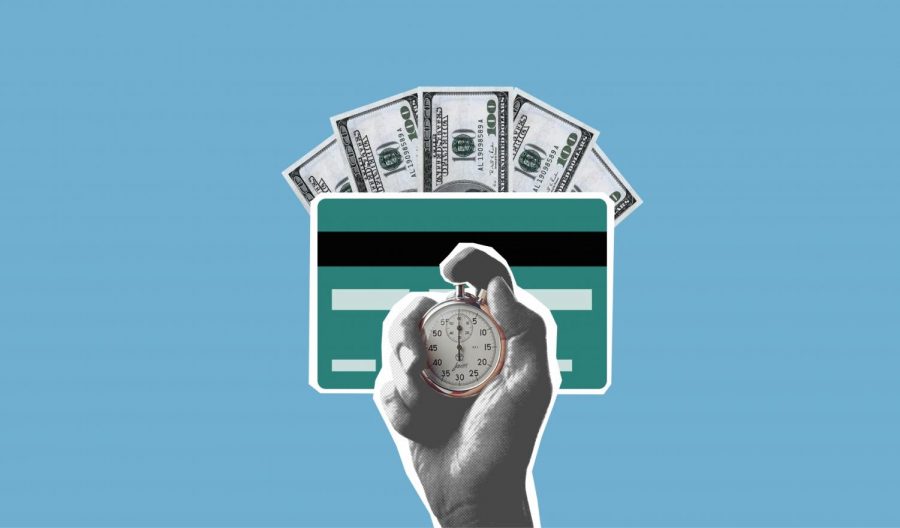Start paying attention to the national debt crisis
Opinion Columnist Colin Horning argues the consequences of the United States’ growing debt.
Mar 1, 2021
One of the most troubling issues currently facing the United States is one that gets little to no attention: the ever-growing federal deficits and national debt. As of the time of this writing, the national debt of the United States is nearly $28 trillion and quickly approaching $30 trillion, a number that we will likely cross within the next few months. Along with the incredibly high amount of debt, the federal spending deficit in the year 2021 will be around $3 trillion, meaning that the United States will spend $3 trillion more than it took in during the year. Both of these numbers are unfathomably high and just keep growing and growing, with seemingly no end in sight; so why does no one seem to care?
The national debt issue isn’t a Republican or Democrat issue: it’s a federal government issue. Presidents and Congresses from all the way back to Franklin Roosevelt in the 1930s have added to the national debt, along with varying amounts of deficit spending. For much of the 20th century, the federal debt and spending was rather sustainable, as the budget does not necessarily need to be at a surplus at all times. However around the 1990s and the turn of the 21st century was when the rise of our national debt began to skyrocket. Presidents Bush, Obama and Trump (and their respective Congresses during their terms) all added more to the national debt than had ever been seen before at a federal level, to the point where the debt was less than $5 trillion in the year 2000 and has grown about six times that in the present day.
What are the effects of tens of trillions of dollars in debt, after all? I don’t want to sound like one of those people that is warning about “the imminent decline of America” or anything like that. That being said there are very real consequences for running up deficits and debts to this magnitude. The main reason why the United States is able to sustain the current debt is because the U.S. dollar is still the best bet for foreign investors around the world. Essentially, people in other countries still see the United States as the strongest economy and best bang for their buck, so they are willing to “buy our debt” in the form of treasury bonds. However, if Congress and the Federal Reserve keep printing money and deficit spending at the current rate, eventually the U.S. dollar will lose enough of its value through the form of inflation, meaning the treasury bonds will no longer have as much value. That means that those who own our debt will start to call it in and it will need to be paid off. Of course, the United States simply doesn’t have the money to pay $30 trillion (and counting) so the only way to pay off a debt of this level is to either drastically raise taxes on people and businesses, or to simply print more money, which would drive prices through the roof and cause the U.S. dollar to be worthless through inflation.
Unfortunately, no one at the federal level seems to care at all about this issue. Democrats and Republicans in the House and Senate, and whoever is in the White House just seem to just throw more taxpayer money at contemporary issues during their time in office and pass off the flaming bag of garbage to the next Congress and president, who then do the same. Fiscal responsibility is dead at the federal level, but unfortunately no one has a care in the world.

















